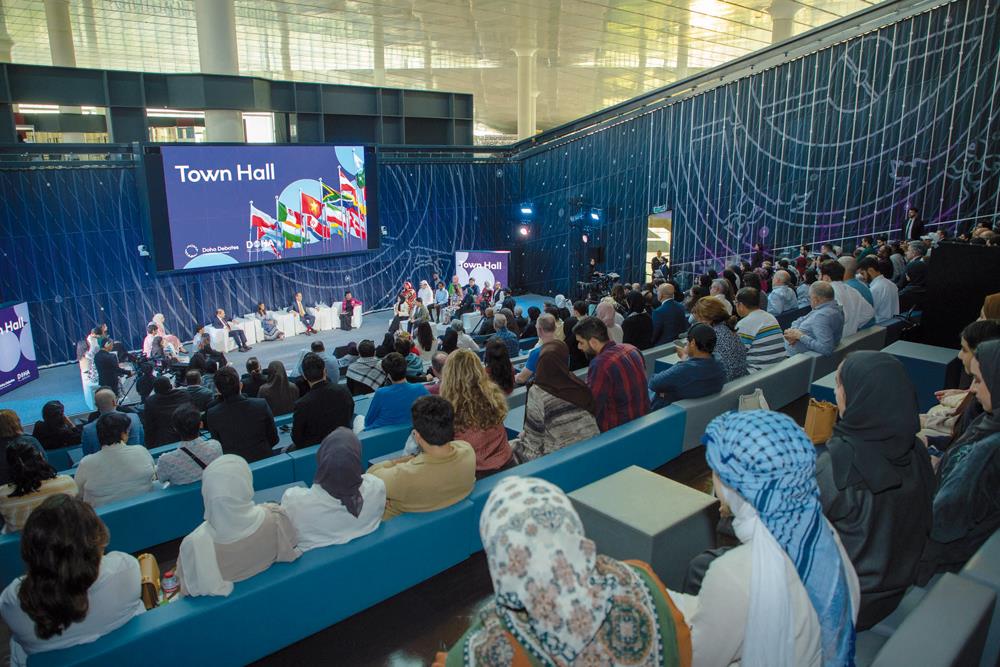
QF's Doha Debates Hosts Spirited Debate On Who Should Lead The World
Doha, Qatar: The outcry over the genocide in Gaza contributed to an urgent and impassioned town-hall-style debate on which nations and entities should take the lead in dealing with the most challenging global issues of our time.
Qatar Foundation's Doha Debates, in partnership with Doha Forum, brought together foreign policy experts, university students and recent graduates for“Rise of the Rest: Who should lead in a multipolar world?” recently at Qatar National Library.
Attended by H E Sheikha Hind bint Hamad Al Thani, the town hall examined how shifting global powers might settle over the next decade as new forces and alliances such as BRICS come to the forefront.
The Gaza genocide figured prominently in the conversation, with panelist Wadah Khanfar citing the controversial role of the United States (US) in the wars in Gaza, Iraq, and Afghanistan as examples of why he believes the world should no longer accept one or two superpowers. Khanfar, president of Al Sharq Forum and former director-general of Al Jazeera, called for a realignment of global power centers.
“I do believe in the power of the people,” he said.“I do not trust centers of power to shape our future. I do believe people today are smarter, much more clever, much more strategic than generations before us. And, therefore, we would like to harness this energy in forging international alliances and movements not necessarily among state actors but also among those who are advocating values that everyone agrees upon.”
Jon B. Alterman, senior vice president and Middle East program director of the US.-based Center for Strategic and International Studies, defended the US's superpower status. Alterman refuted suggestions the US tries to impose its will upon the world.“Leadership is not command. Leadership is an ability to coordinate and to inspire,” which he described as the US intention globally.
He said the US superpower's status is an outgrowth of the aftermath of World Wars One and Two, which he said prompted the US to“create alliances with like-minded states to try to avoid the world getting into those kinds of problems again.” He argued the US remains uniquely positioned to play a global leadership role in dealing with the world's most challenging issues, including climate change, infectious diseases, and human trafficking.
Sawsan Chebli, a foreign policy expert, columnist, and co-founder of the Arab-German Friendship Association, said the world would be better off if women were more empowered.“I think we have to rethink the way we think of global powers and leadership,” she said, calling for a more widely practiced“feminist foreign policy,” describing it as anti-colonial, anti-war, and anti-racist.

Legal Disclaimer:
MENAFN provides the
information “as is” without warranty of any kind. We do not accept
any responsibility or liability for the accuracy, content, images,
videos, licenses, completeness, legality, or reliability of the information
contained in this article. If you have any complaints or copyright
issues related to this article, kindly contact the provider above.

















Comments
No comment